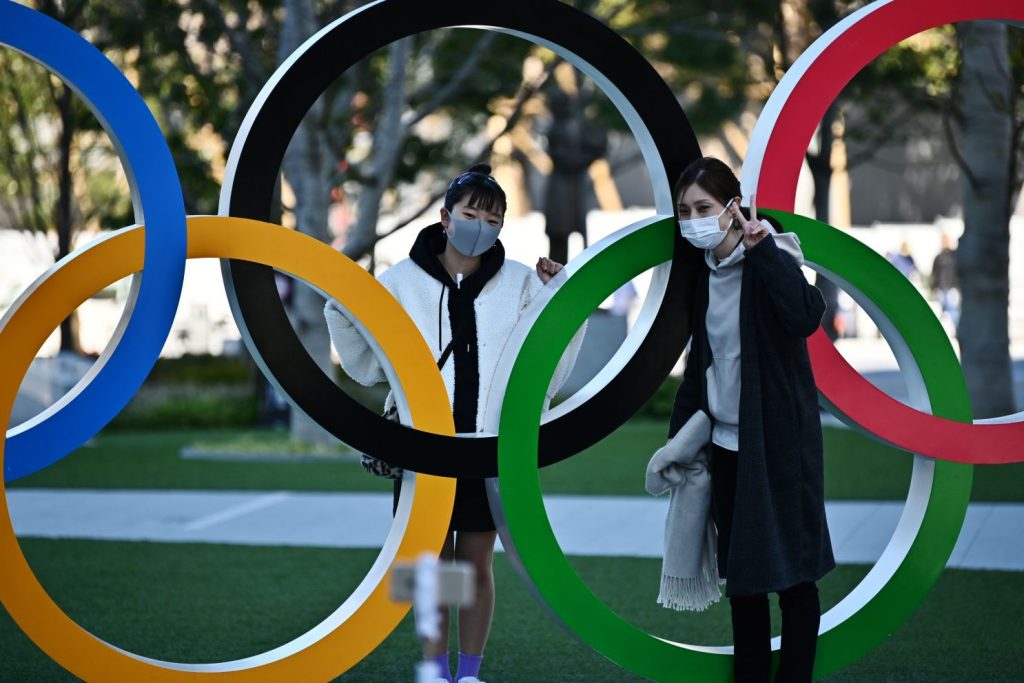Member Insights: Tokyo 2020, Coronavirus Puts The World Of Sport Put To The Test
March 25, 2020
Philippe Blanchard, former Director of the International Olympic Committee, looks at how the Olympics must evolve and reinvigorate young people following the postponement of Tokyo 2020.
Eighty years after the cancellation of the summer Olympics in Tokyo in 1940, another war, this time a sanitary one, obliged the International Olympic Committee and the Japanese Government to postpone the Games of the 32nd Olympiad. It has been a long period of indecision, which is understandable as the funding, values and cohesion of the Olympic Movement were at stake. The current health crisis has revealed a certain institutional fragility and more broadly, a deeper crisis of authority and adaptability.
The athletes were the first ones to blow the whistle and challenge the official position of the IOC, on March 17th, to maintain the Games and to keep on training. In addition to the legitimate public health issue, a growing number of athletes were indeed advocating for a cancellation because they could neither train nor compete in qualifying events. Geographical disparities in the spread of the virus also jeopardised a fair participation in the “quadrennial celebration of universal youth, the human springtime” (Baron Pierre de Coubertin).
This is the major challenge the IOC must now face: finding the balance between sporting excellence and universality and the legal and financial accountability.
This is the major challenge the IOC must now face: finding the balance between sporting excellence and universality (which make up the media value and therefore the financial value of the games) and the legal and financial accountability. Coubertin stated that “every difficulty encountered is an opportunity for new progress” but the paralysis in the decision-making became a testimony of the institutional constraints, long masked by the successes of the glorious years of Presidents Samaranch and Rogge.
That said, as the “World Bank of Sport”, the IOC is the economic guarantor of the Games. Its reserve fund (USD 1 billion) and cancellation insurance (USD 900 million) would have made possible to compensate, in part, for the loss of income (TV rights and sponsorship revenues) and thus provide overall support to the International Federations (IFs), the National Olympic Committees (NOCs) and the Organising Committee. The ‘100% agreement’ of the postponement means it is not a breach nor a termination of the Host City contract: no damages should be claimed between the two but it will impact the other stakeholders. For Tokyo 2020, organisers estimated the total cost of the Games (infrastructure and operational costs) at around 1.35 trillion yen ($12.6 billion). Some Olympic experts now assess the costs of the postponement above $3 billion while Kansai University economics professor Katsuhiro Miyamoto said that postponing the 2020 Games would cost Japan 640.8 billion yen ($5.739 billion).
However, besides the complex financial and legal negotiations on the postponement, the coronavirus could very well be the agent of the renewal of the Olympic Movement and prompt a return to the initial values of Olympism. It is remarkable that the questions about the future of the Tokyo Games are now mobilising media and stakeholders who previously did not show great interest in the Games. This new- found interest contrasts with the growing disinterest of young people in the Games: the average age of television viewers is now 53 years old. Pierre de Coubertin reminds us once again that, “in order to influence young people, we need to understand their zeal for life.” Today’s youth is innovative: curious, it seeks to learn, understand and get involved. The revitalisation of the Olympic Movement will be achieved through their participation and involvement.
The Olympic Movement has the obligation to win back the youth: that is its raison d’être. It must reinvent itself.
It is necessary to mobilise young people’s creativity, reinvent competition spaces, complement them with collaborative, multidimensional and technological spaces. It is necessary to accept to host eSports, technology and robots competitions and redefine the interaction between spectators and competitors. We have to propose collective experiences where athletes and para-athletes, men and women unite.
Sport must no longer be ostracised or parked. It must regain its social and educational vocation and be reconciled with culture and art.
Covid-19 is forcing us all to think in terms that are radically different from those of the past. To resolve this “crisis” – etymologically the need to make a choice – the Olympic Movement has the obligation to win back the youth: that is its raison d’être. It must reinvent itself. Starting with its original identity and turn sport and competition into platforms for education, exchange and construction. As it goes through this renewal, the Olympic Movement must know that it will also be able to count on the commitment of independent structures, such as Futurous. Success is linked above all to our ability to act collectively. Together we can reinvent the Games of that 32nd Olympiade the greatest celebration of Youth and Sport. And the celebration of the global victory versus the coronavirus.
by Philippe Blanchard,
Philippe is a former Director of the International Olympic Committee, the Founder of Futurous and former Senior Advisor to Her Excellency Reem Al Hashimy, Minister of State and Director General of Expo 2020 Dubai.
If you have an opinion you would like to share via iSportconnect, please email ben@isportconnect.com to discuss further.


